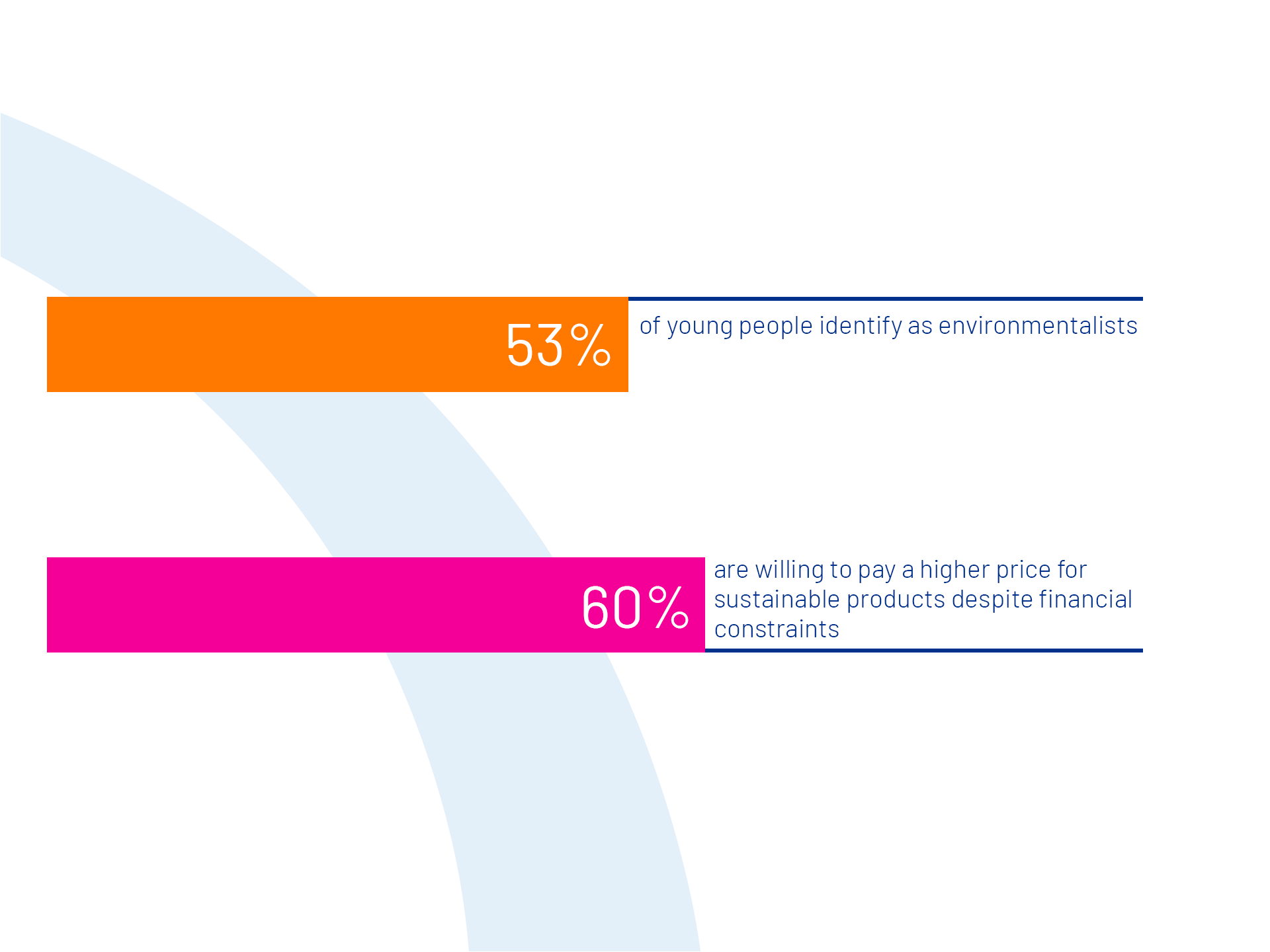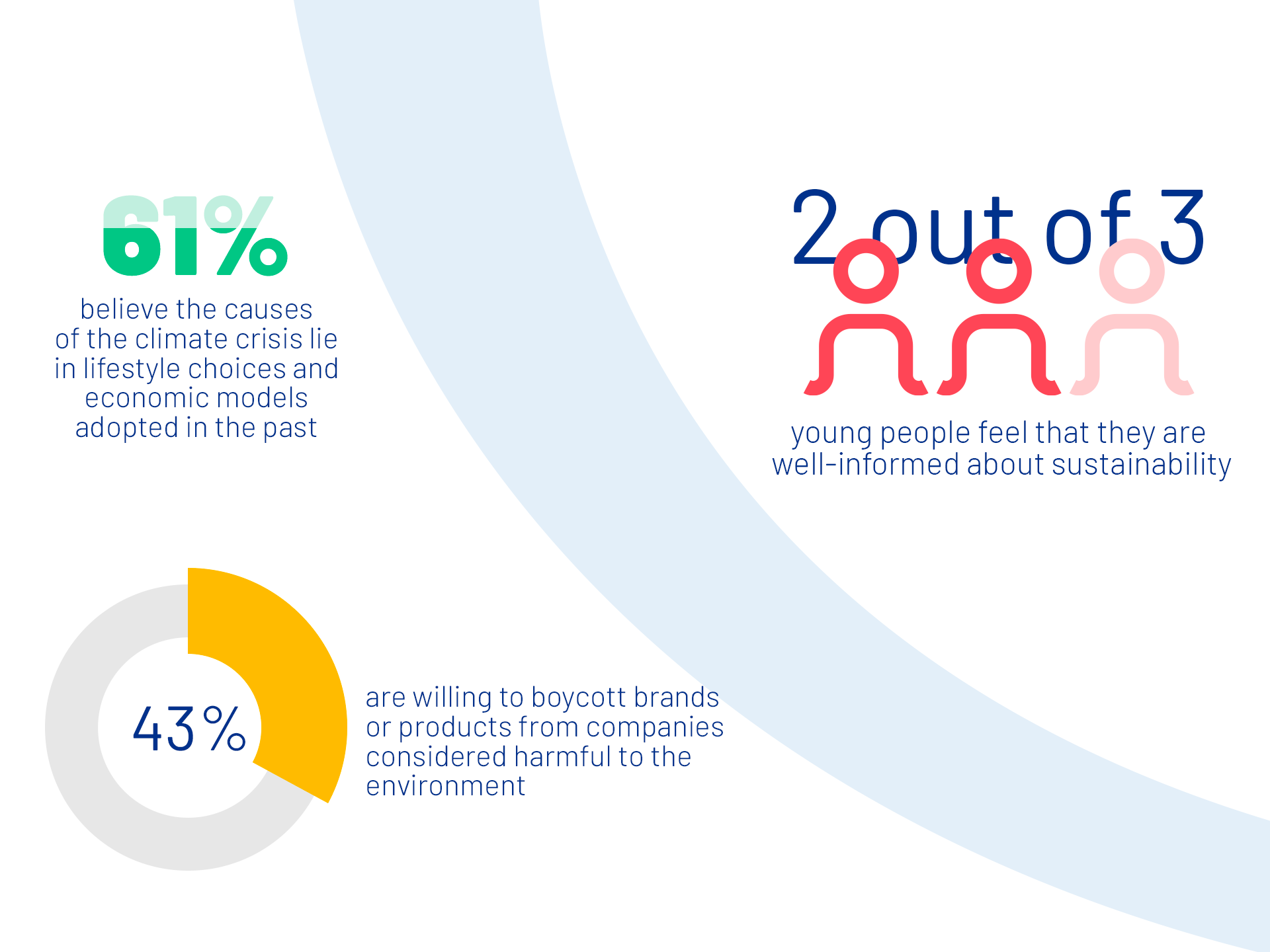Native and Active: here's Sustainability Gen Z Style
Share
“Walk the talk”
Today more than ever, listening to young people and understanding their deepest needs is essential for companies that want to look to the future and play a leading role in it. To attract and engage those who represent tomorrow's workers and consumers, companies must demonstrate a concrete and tangible commitment to issues such as sustainability and inclusion, starting with authentic, evidence-based communication. We are faced with generations that have grown up as digital natives and sustainability-conscious, with unprecedented characteristics and contradictions that require a consistent and forward-thinking response.

Teenagers, young adults, young professionals: the voices of an increasingly aware and engaged generation.
The research "Versione GenZ: le prime generazioni native sostenibili si raccontano," sponsored by Angelini Industries, carried out by Quorum/YouTrend and CSA Research, and presented at the CSR Show in Milan, was created with the goal of gathering and deepening the priorities and expectations of young people aged 14 to 29, belonging to Generation Z.
From the results of the survey, conducted through an innovative and interactive methodology specifically designed to approach the environments and language of the new generations, it emerges unmistakably that young people show a predominant interest in companies that promote clear values and shared goals, offer work flexibility and guarantee real opportunities for professional growth. New generations also show greater sensitivity than previous generations towards environmental and social issues, making them more inclined to activism in these areas and more likely to purchase eco-sustainable products.
Let the numbers speak for themselves: Generation Z is more sensitive and informed about the climate crisis than the rest of the population. 53% call themselves environmentalists and almost half have boycotted products or brands considered socially irresponsible, a higher percentage than the general population. In addition, 60% are willing to pay a premium price for a sustainable product, despite having less financial means.

Young people, in fact, show particular sensitivity towards the "E" component of the ESG acronym (Environment, Social, Governance), with 44% defining a company as "sustainable" if it is concretely committed to environmental protection, compared to 41% of the rest of the population. There is also growing attention towards social issues, such as the protection of workers' rights and support for vulnerable groups, highlighting an increasingly holistic and comprehensive approach to sustainability.
But who should lead the change?
Gen Z's response is clear: the state, first and foremost, followed by citizens and businesses. 78% of respondents say that governments should take a central role in the change process, and 64% believe that the state should shoulder the burden of sustainability through the adoption of appropriate incentive policies.
Many young people hold previous generations responsible for the planet's crisis, but they are ready to turn resentment into action and accountability: 61% attribute the origin of the climate crisis to the lifestyle and economic models adopted in the past, 2 in 3 say they are adequately informed about sustainability, while 43% are willing to boycott products and services of companies deemed harmful to the environment.

In terms of work, Generation Z also has clear and radically different ideas than in the past. 49% of young people put work-life balance first when choosing a job, while more than 20% believe it is essential to find themselves in solid, well-defined corporate values.
Young people do not just observe: they act and demand authenticity from companies.
For Angelini Industries, sustainability is not just a native issue or an ethical imperative, but a strategic choice that is implemented in a cross-cutting and integrated manner in all areas of activity, starting with its people. Nearly a third of new hires involve professionals under 30, who are particularly interested in flexibility measures, such as smart working, and in clear and well-defined opportunities for development and growth, such as those offered by the Group thanks to the presence of Angelini Academy.
On the environmental sustainability front, a theme of focus for GenZ, Angelini Industries is committed to optimizing its consumption patterns and reducing its emission footprint, starting with a symbolic "place" such as "Casa Angelini", the historic headquarters in Rome, an example of urban regeneration and sustainable technological innovation and among the few buildings to have LEED Platinum certification in Rome.
The era of empty promises is over; Today "walk the talk" is the rule.
Truly doing what one says, ensuring transparency and consistency, without hiding information (a phenomenon known as "hushing") or sugar-coating reality (the well-known multiple variants of "washing"), is now a priority for companies. And saying what one does, in the name of authenticity.
 Angelini Industries
Angelini Industries




